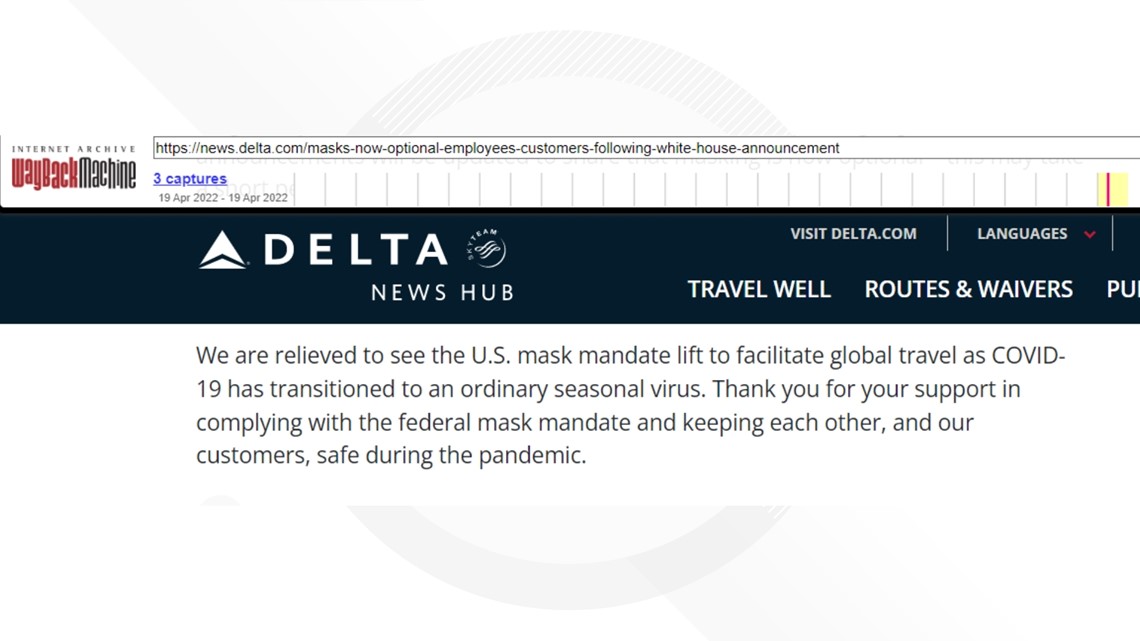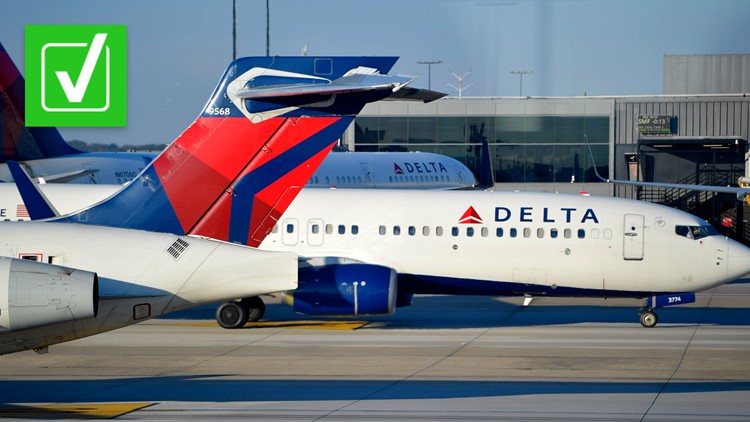On April 18, a federal judge in Florida struck down a national mask mandate on airplanes and other forms of public transportation in the United States. By Monday evening, the Transportation Security Administration (TSA) announced it will no longer enforce the federal mask mandate on public transit or in transportation hubs due to the court’s ruling.
Following the TSA’s announcement, several major airlines, including Delta, United and American, swiftly repealed their mask requirements and made mask-wearing optional for customers and employees. After Delta Air Lines shared a link to its announcement of the mask mandate repeal on Twitter, several health officials (here, here and here) began calling the airline out for allegedly spreading misinformation, and many shared screenshots suggesting that Delta claimed COVID-19 has transitioned into an “ordinary seasonal virus” in its news release.
THE QUESTION
Did Delta Air Lines call COVID-19 an “ordinary seasonal virus” after the federal mask mandate on public transportation was lifted?
THE SOURCES
THE ANSWER
Yes, Delta Air Lines did call COVID-19 an “ordinary seasonal virus” after the federal mask mandate on public transportation was lifted. According to the World Health Organization, the coronavirus outbreak is still classified as a pandemic.
WHAT WE FOUND
A Wayback Machine archive of Delta Air Lines' original news release shows it did include language that said “COVID-19 has transitioned to an ordinary seasonal virus” in the last paragraph of the announcement. The archive also shows the original release was published on Delta’s website on April 18 at 7 p.m. and was attributed to a staff writer.


VERIFY confirmed the news release was updated on April 19 at 10 a.m., and the claim that “COVID-19 has transitioned to an ordinary seasonal virus” was removed. The text was replaced with:
“We are relieved to see the U.S. mask mandate lift to facilitate global travel as COVID-19 transitions to a more manageable respiratory virus – with better treatments, vaccines and other scientific measures to prevent serious illness.”
A Delta spokesperson also confirmed that the company’s “news release from late yesterday has been updated this morning for clarity and accuracy” in an email to VERIFY.
Diseases, including COVID-19, are classified by how they spread, and a pandemic is declared when a disease has spread exponentially across several countries. On March 11, 2020, the World Health Organization (WHO) officially declared the coronavirus outbreak a pandemic after months of assessing the spread and severity of COVID-19 globally.
“Pandemic is not a word to use lightly or carelessly. It is a word that, if misused, can cause unreasonable fear, or unjustified acceptance that the fight is over, leading to unnecessary suffering and death,” WHO director-general Tedros Ghebreyesus said following the declaration.
When the worldwide spread of a disease is brought under control in a localized area, it is no longer considered a pandemic but an epidemic, according to the WHO. Meanwhile, if a disease is still present globally, but at expected or normal levels, it is not considered a pandemic, but instead, endemic.
In March, CDC director Rochelle Walensky said in an interview that COVID-19 will “probably” be a “seasonal virus.” However, Walensky did not give a timeline on when the disease would transition from pandemic to endemic in the U.S.
On April 13, the WHO’s International Health Regulations Emergency Committee on COVID-19 unanimously agreed that the pandemic remains a Public Health Emergency of International Concern (PHEIC). A PHEIC is defined as “an extraordinary event which is a public health risk to countries through cross-border spread, and which requires a coordinated international response,” according to WHO.
The CDC also continues to classify the coronavirus outbreak as a pandemic on its website as of April 19.
The Associated Press contributed to this report
More from VERIFY: Yes, there is a new coronavirus subvariant called XE



